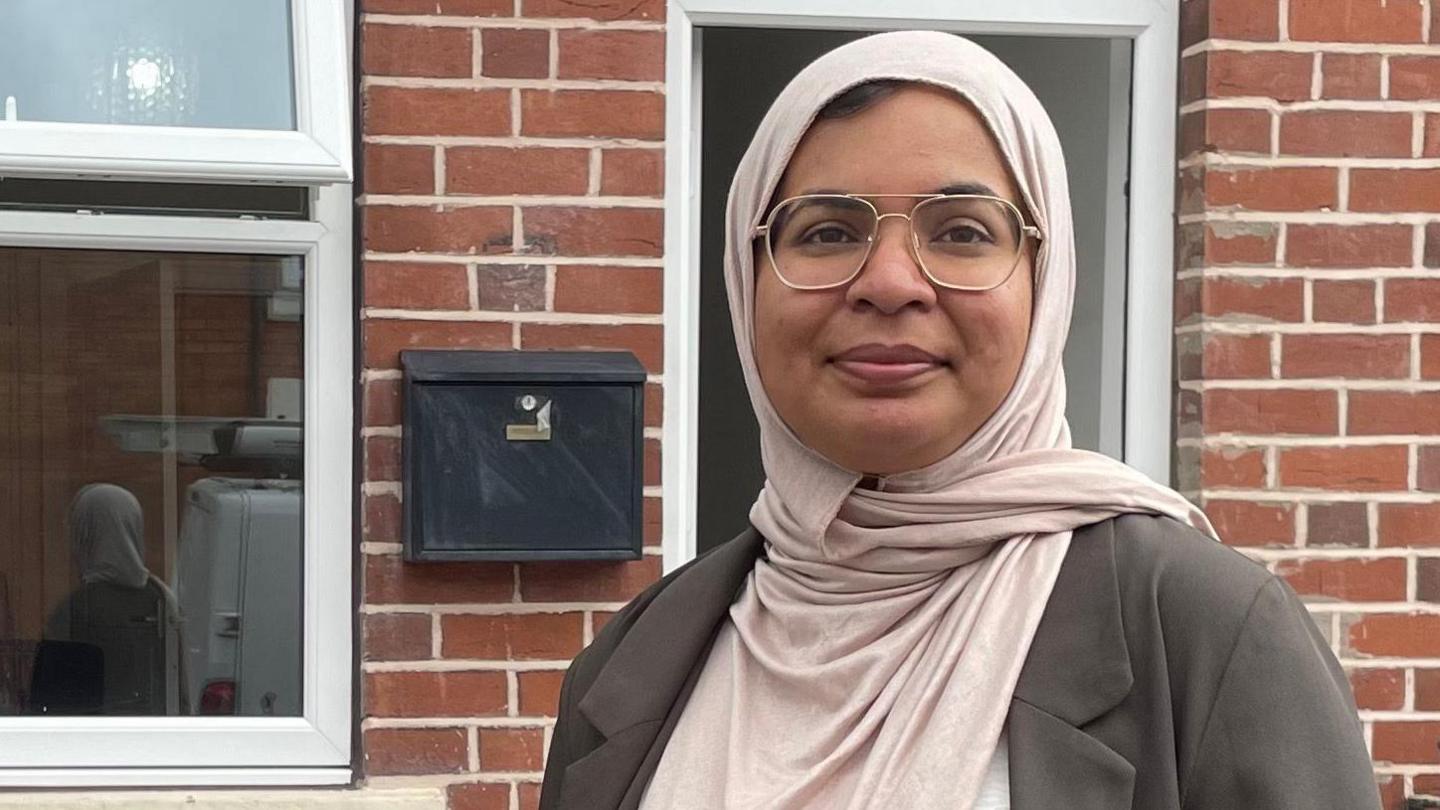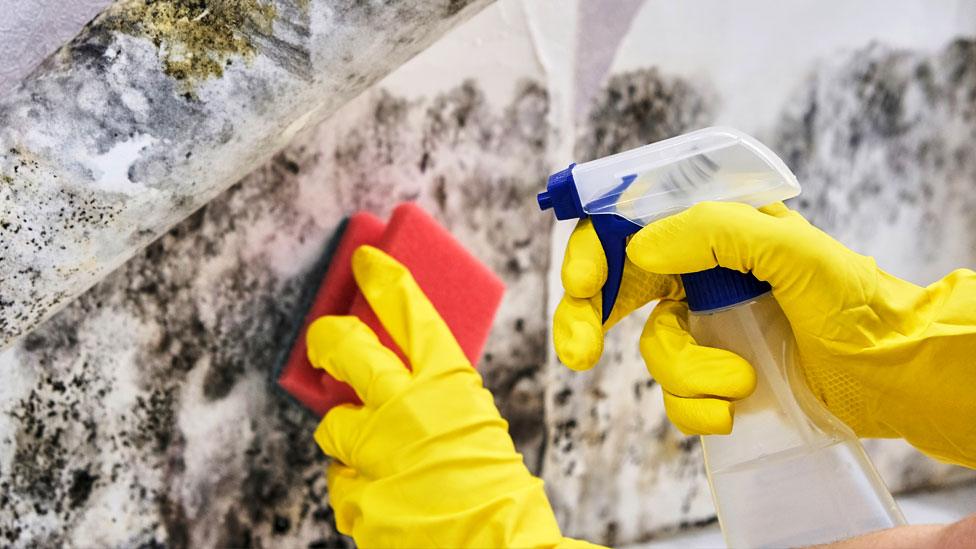'Energy efficiency is a win-win for landlords'

Landlady Mahara Haque said she was retrofitting her properties to set an example to other owners
- Published
A landlady has urged others to follow her lead in making their properties more energy efficient ahead of new government requirements, saying improvements were a "win-win" for owners.
Sheffield landlady Mahara Haque is retrofitting two houses in anticipation of the government's Warm Homes Plan.
The scheme would require existing rental properties to have a minimum Energy Performance Certificate (EPC) rating of C or above by 2030 - currently, they only need a rating of E.
Ms Haque is being backed by the South Yorkshire Mayoral Combined Authority (SYMCA) to get a head start, and said doing her bit to protect the environment was her "key driver".
The SYMCA-led project Let Zero, which works alongside landlords to retrofit their properties, was allocated £2.4m in funding last year.
Ms Haque joined its pilot scheme to support energy-saving renovations in 200 homes across South Yorkshire.
Her rental houses were being installed with wood fibre insulation so they would retain more heat, as well as an air-source heat pump and solar panels to generate sustainable energy.
"We all know the impact that carbon has on our planet - that's a key driver for me," she said.
"Also, 40% of our tenants are from vulnerable backgrounds and are struggling with the cost of energy, so if we can implement ways which can help them with their bills, it's a win-win."
Home energy efficiency in Sheffield rentals
Let Zero project manager Malcom Ramsay said 60% of private rental properties in the region would currently fail to meet the proposed EPC C rating.
He said many landlords were not aware of the financial support they were eligible for, and estimated only a fifth of grants in the sector were being claimed.
However, he added the project was not just about offering help to landlords, but reducing bills and improving conditions for tenants.
"We know that about 23% of people in the private rented sector here are living in fuel poverty, meaning they can't afford to pay their heating bills.
"They're living in homes that are too cold for them, and it affects not only their health and wellbeing, but it could lead to problems in the house itself like damp and mould - which can have a bad effect on their health in its own right."
From October, under Awaab's Law, social landlords - generally the local council or a housing association - will need to investigate and fix damp and mould in social housing in England within strict timescales.
They will also be required to repair all emergency hazards within 24 hours.
However, under the Renters' Rights Bill, owners of private rentals could be made to comply by these requirements as well.
Mr Ramsay said: "We're trying to give them the information and the tools to make the right decisions about their properties, to help them reach the new standards."
Get in touch
Tell us which stories we should cover in Yorkshire
Listen to highlights from South Yorkshire on BBC Sounds or catch up with the latest episode of Look North.
Related stories
- Published13 February

- Published5 March
